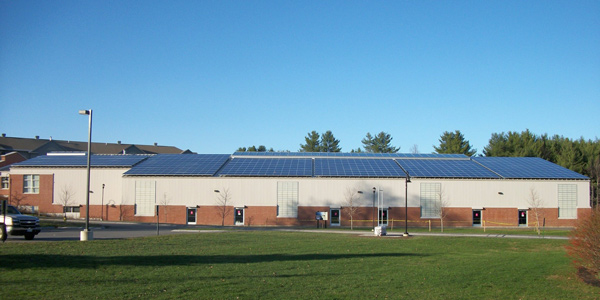By Michael Kuser
Maine Gov. Paul LePage followed through Monday on his promise to veto a solar net metering bill, calling it bad policy that would “result in irrational outcomes.”
The state Legislature passed the bill (LD 1504) with a bipartisan, veto-proof majority June 28. The governor waited to act until the last moment of the 10 business days that Maine provides for a veto.
“This bill is poor policy, and as I have noted many times, net energy billing subsidizes the cost of solar panels at the expense of the elderly and poor who can least afford it,” the governor said in a veto letter to the Legislature. “Even the Natural Resources Council of Maine has acknowledged that net energy billing ‘is not a preferred long-term policy.’ However, rather than moving away from this practice to a more sustainable approach, LD 1504 instead sets net energy billing into statute in perpetuity.”
“[LePage’s] characterizations of the bill are inaccurate,” responded Emily Green, an attorney for the Conservation Law Foundation. “He basically says the bill is going to make net metering long-term policy and that’s clearly not the goal or the intent of the legislation.”
Increased Participation
The bill would continue allowing residents who generate more power than they consume to earn credits for the retail price of that electricity, minus transmission and distribution costs. But it would require the Public Utilities Commission to recommend ways to transition away from net metering before the Legislature convenes in 2019, with solar power generators to be paid less starting in 2018.
The bill also raises the cap from 10 to 100 on the number of participants allowed in a community solar venture. It would prohibit utilities from setting new requirements for installing a second meter at homes that already receive credit for energy they produce and put back onto the grid.
Green said the override vote is expected sometime in the last week of July.
“We had the votes the first time through — enough votes to override the veto — assuming we hold on to all the lawmakers who voted in favor the first time around,” Green said. “So I feel optimistic.” But there certainly remains work to be done in contacting our Maine lawmakers to make sure they remain strong in the face of very strong opposition from the governor.”
The legislation passed 105-41 in the House of Representatives and 29-6 in the Senate, giving supporters a cushion of two votes in the House and six in the Senate to maintain a two-thirds vote required for an override.
On the final day of the 2016 legislative session, however, defections by House Republicans allowed LePage to survive an override vote on his veto of a bill to increase the amount of solar-generated electricity in the state’s renewable energy portfolio.





